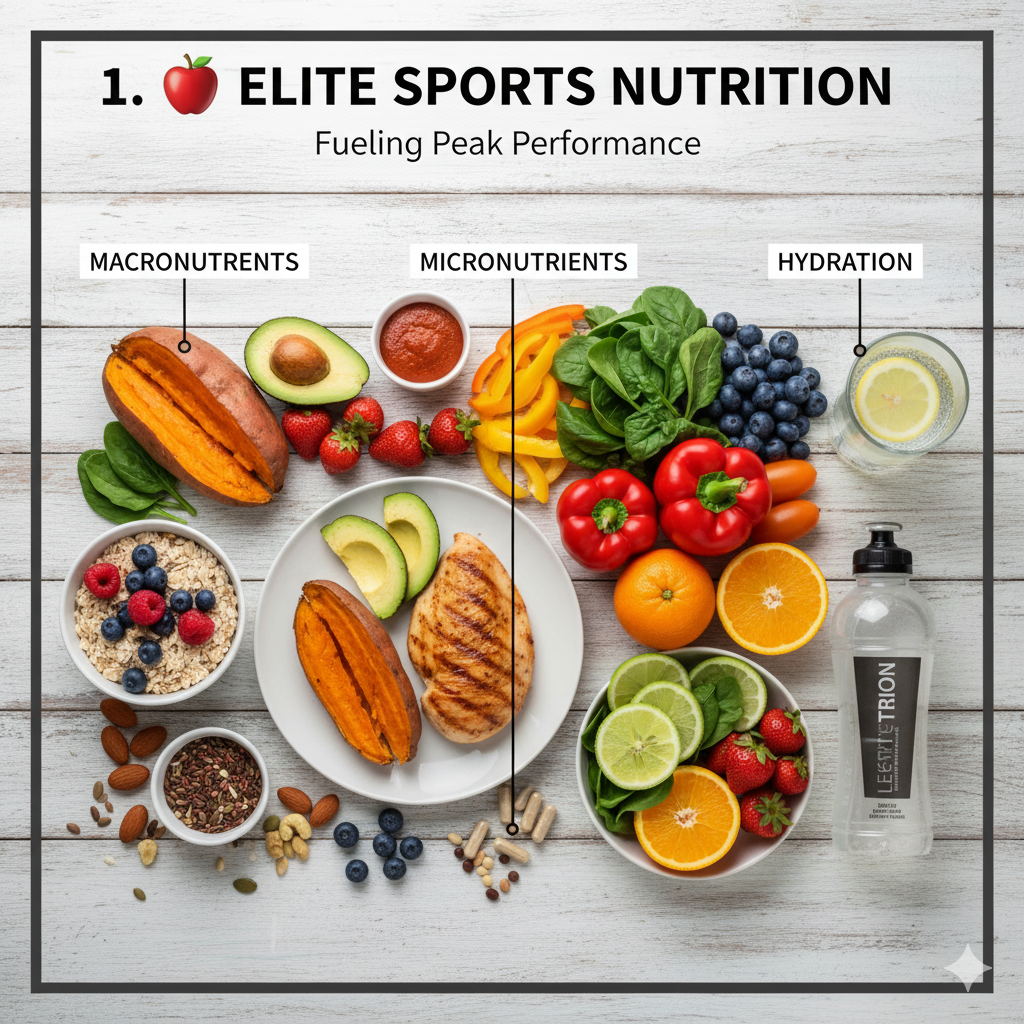Staying fit and healthy is more than just working out; it’s about maintaining a balance between physical fitness, proper nutrition, mental wellness, and recovery. Whether you are a professional athlete or a weekend warrior, following the right athletic health and wellness tips can help you enhance performance, prevent injuries, and boost overall well-being.
In this post, we will look at some practical ways of keeping your body and mind in good condition.

Understanding Athletic Health and Wellness
Athletic health means the strength, endurance, flexibility, and recovery process of an athlete, while wellness is more about mental and emotional balance that can help you perform at your best.
Put together, they form a foundation for sustainable performance and a lower injury risk.
The key components of athletic wellness include:
• Proper nutrition and hydration
• Regular physical activity and strength training
• Rest and recovery
• Mental focus and stress management
• Injury prevention and flexibility.
Top Athletic Health and Wellness Tips
1. Ensure Proper Nutrition
This is where you refuel with proper nutrition to energize, repair your muscles, and keep going.
Tips:
• Eat a balanced diet rich in lean proteins, complex carbohydrates, and healthy fats.
• Include fruits and vegetables for vitamins and antioxidants.
• Stay hydrated before, during, and after exercise.
• Avoid foods that are processed and contain sugar, as these only lead to fatigue.
2. Warm up and cool down
Warm-ups or cool-downs, if missed, increase the chances of injuries.
• Spend 5–10 minutes warming up with light cardio and stretching.
• Stretch lightly after workouts, allowing the muscles to relax and avoid stiffness.
3. Get Enough Sleep
Recovery and performance are significantly influenced by sleep.
• Aim for 7–9 hours of sleep each night.
• Keep a regular sleep schedule.
Get better rest by avoiding caffeine or screens before bedtime.
4. Concentrate on Mental Well-being
A healthy mindset greatly affects athletic success.
• Practice mindfulness or meditation to reduce stress.
• Set realistic performance goals.
• Use visualization techniques before training or competition.
• Maintain a positive attitude even after setbacks.
5. Stay Consistent with Training
Consistency is the key to long-term athletic improvement.
• Follow a structured workout routine.
• Vary exercises to target different major muscle groups.
• Include both strength and cardio sessions per week.
6. Listen to Your Body
Ignoring pain or fatigue might lead to serious injuries.
• Rest when you need to.
• Address soreness with stretching, massage, or ice therapy.
• If pain persists, consult a sports medicine professional.
7. Include recovery techniques.
Recovery rebuilds your body for a better performance in the next session.
Try:
• Stretching and foam rolling
• Ice baths or contrast therapy
• Yoga for flexibility and calmness of the mind
• Massage therapy for muscle relaxation
8. Avoid Overtraining
Overtraining can lead to fatigue, reduced performance, and even injury.
Watch your exercise intensity and duration.
• Alternate between high- and low-intensity training days.
• Track your progress to avoid burnout.
Best Habits for Long-Term Athletic Wellness
Creating sustainable habits ensures continued health and improved performance.
Daily wellness checklist:
Eat nutrient-dense foods.
Water intake is enough.
Stretch before and after workouts.
Sleep well.
Rest on rest days.
Conclusion
Remember, athletic health and wellness are more than a fit body—it’s a balanced lifestyle that caters equally to the body and mind. Incorporate these tips on athletic health and wellness into your routine to improve performance, reduce injury risk, and enjoy a healthier, more active lifestyle. The best athletes aren’t just the strongest; they’re often the most consistent and mindful about their well-being.
FAQs About Athletic Health and Wellness
1. What is the biggest contributor to an athlete’s well-being?
The most important things are proper recovery and balanced nutrition. Both of these enable your body to perform and recover efficiently.
2. How many rest days per week does an athlete require?
Most athletes need to take one or two rest days a week, depending on training intensity.
3. Does mental health influence athletic performance?
Yes, stress, anxiety, or a lack of focus reduces performance and increases the potential for burnout.
4. What foods are best for athletic performance?
The best foods would include those rich in complex carbohydrates, lean proteins, healthy fats, and hydration through fruits and veggies.
5. How do athletes prevent injuries?
Properly warm up, maintain flexibility, use proper techniques, and do not ignore your body’s warning signs to avoid overuse injuries.